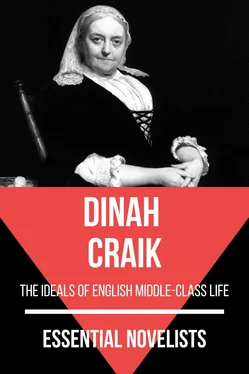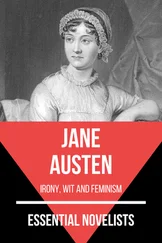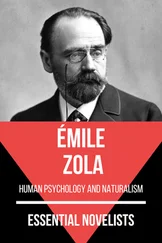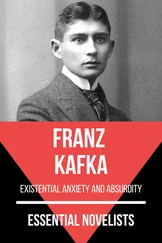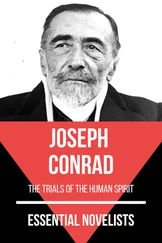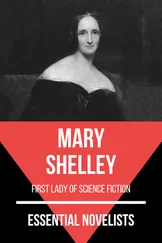He sat down. I knew he loved his money, for it had been hardly earned. I had not thought he would have borne its loss so quietly.
“Father, never mind; it might have been worse.”
“Of a surety. I should have lost everything I had in the world — save for — Where is the lad? What art thee standing outside for? Come in, John, and shut the door.”
John obeyed, though without advancing. He was cold and wet. I wanted him to sit down by the fireside.
“Ay! do, lad,” said my father, kindly.
John came.
I stood between the two — afraid to ask what they had undergone; but sure, from the old man’s grave face, and the lad’s bright one — flushed all over with that excitement of danger so delicious to the young — that the peril had not been small.
“Jael,” cried my father, rousing himself, “give us some breakfast; the lad and me — we have had a hard night’s work together.”
Jael brought the mug of ale and the bread and cheese; but either did not or could not notice that the meal had been ordered for more than one.
“Another plate,” said my father, sharply.
“The lad can go into the kitchen, Abel Fletcher: his breakfast is waiting there.”
My father winced — even her master was sometimes rather afraid of Jael. But conscience or his will conquered.
“Woman, do as I desired. Bring another plate, and another mug of ale.”
And so, to Jael’s great wrath, and to my great joy, John Halifax was bidden, and sat down to the same board as his master. The fact made an ineffaceable impression on our household.
After breakfast, as we sat by the fire, in the pale haze of that February morning, my father, contrary to his wont, explained to me all his losses; and how, but for the timely warning he had received, the flood might have nearly ruined him.
“So it was well John came,” I said, half afraid to say more.
“Ay, and the lad has been useful, too: it is an old head on young shoulders.”
John looked very proud of this praise, though it was grimly given. But directly after it some ill or suspicious thought seemed to come into Abel Fletcher’s mind.
“Lad,” suddenly turning round on John Halifax, “thee told me thee saw the river rising by the light of the moon. What wast THEE doing then, out o’ thy honest bed and thy quiet sleep, at eleven o’clock at night?”
John coloured violently; the quick young blood was always ready enough to rise in his face. It spoke ill for him with my father.
“Answer. I will not be hard upon thee — to-night, at least.”
“As you like, Abel Fletcher,” answered the boy, sturdily. “I was doing no harm. I was in the tan-yard.”
“Thy business there?”
“None at all. I was with the men — they were watching, and had a candle; and I wanted to sit up, and had no light.”
“What didst thee want to sit up for?” pursued my father, keen and sharp as a ferret at a field-rat’s hole, or a barrister hunting a witness in those courts of law that were never used by, though often used against, us Quakers.
John hesitated, and again his painful, falsely-accusing blushes tried him sore. “Sir, I’ll tell you; it’s no disgrace. Though I’m such a big fellow I can’t write; and your son was good enough to try and teach me. I was afraid of forgetting the letters; so I tried to make them all over again, with a bit of chalk, on the bark-shed wall. It did nobody any harm that I know of.”
The boy’s tone, even though it was rather quick and angry, won no reproof. At last my father said gently enough —
“Is that all, lad?”
“Yes.”
Again Abel Fletcher fell into a brown study. We two lads talked softly to each other — afraid to interrupt. He smoked through a whole pipe — his great and almost his only luxury, and then again called out —
“John Halifax.”
“I’m here.”
“It’s time thee went away to thy work.”
“I’m going this minute. Good-bye, Phineas. Good day, sir. Is there anything you want done?”
He stood before his master, cap in hand, with an honest manliness pleasant to see. Any master might have been proud of such a servant — any father of such a son. My poor father — no, he did not once look from John Halifax to me. He would not have owned for the world that half-smothered sigh, or murmured because Heaven had kept back from him — as, Heaven knows why, it often does from us all! — the one desire of the heart.
“John Halifax, thee hast been of great service to me this night. What reward shall I give thee?”
And instinctively his hand dived down into his pocket. John turned away.
“Thank you — I’d rather not. It is quite enough reward that I have been useful to my master, and that he acknowledges it.”
My father thought a minute, and then offered his hand. “Thee’rt in the right, lad. I am very much obliged to thee, and I will not forget it.”
And John — blushing brightly once more — went away, looking as proud as an emperor, and as happy as a poor man with a bag of gold.
“Is there nothing thou canst think of, Phineas, that would pleasure the lad?” said my father, after we had been talking some time — though not about John.
I had thought of something — something I had long desired, but which seemed then all but an impossibility. Even now it was with some doubt and hesitation that I made the suggestion that he should spend every Sunday at our house.
“Nonsense! — thee know’st nought of Norton Bury lads. He would not care. He had rather lounge about all First-day at street corners with his acquaintance.”
“John has none, father. He knows nobody — cares for nobody — but me. Do let him come.”
“We’ll see about it.”
My father never broke or retracted his word. So after that John Halifax came to us every Sunday; and for one day of the week, at least, was received in his master’s household as our equal and my friend.
––––––––

Summers and winters slipped by lazily enough, as the years seemed always to crawl round at Norton Bury. How things went in the outside world I little knew or cared. My father lived his life, mechanical and steady as clock-work, and we two, John Halifax and Phineas Fletcher, lived our lives — the one so active and busy, the other so useless and dull. Neither of us counted the days, nor looked backwards or forwards.
One June morning I woke to the consciousness that I was twenty years old, and that John Halifax was — a man: the difference between us being precisely as I have expressed it.
Our birthdays fell within a week of each other, and it was in remembering his — the one which advanced him to the dignity of eighteen — that I called to mind my own. I say, “advanced him to the dignity”— but in truth that is an idle speech; for any dignity which the maturity of eighteen may be supposed to confer he had already in possession. Manhood had come to him, both in character and demeanour, not as it comes to most young lads, an eagerly-desired and presumptuously-asserted claim, but as a rightful inheritance, to be received humbly, and worn simply and naturally. So naturally, that I never seemed to think of him as anything but a boy, until this one June Sunday, when, as before stated, I myself became twenty years old.
I was talking over that last fact, in a rather dreamy mood, as he and I sat in our long-familiar summer seat, the clematis arbour by the garden wall.
“It seems very strange, John, but so it is — I am actually twenty.”
“Well, and what of that?”
I sat looking down into the river, which flowed on, as my years were flowing, monotonous, dark, and slow — as they must flow on for ever. John asked me what I was thinking of.
Читать дальше
